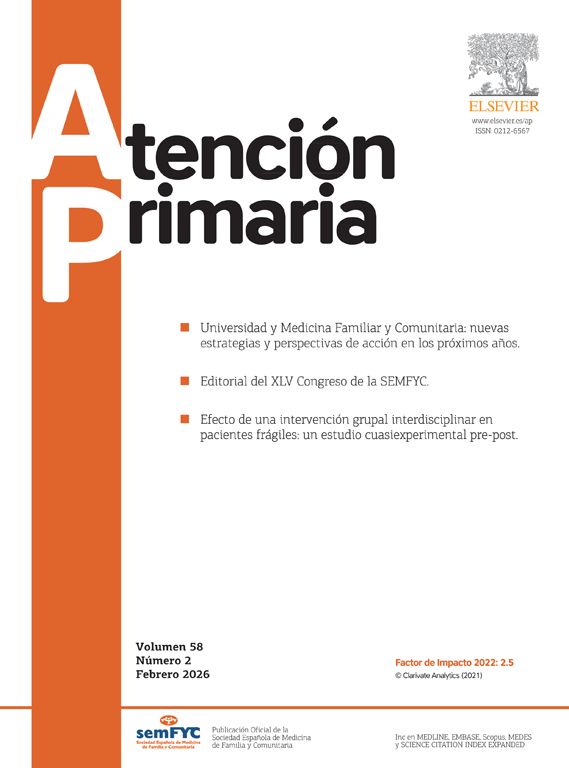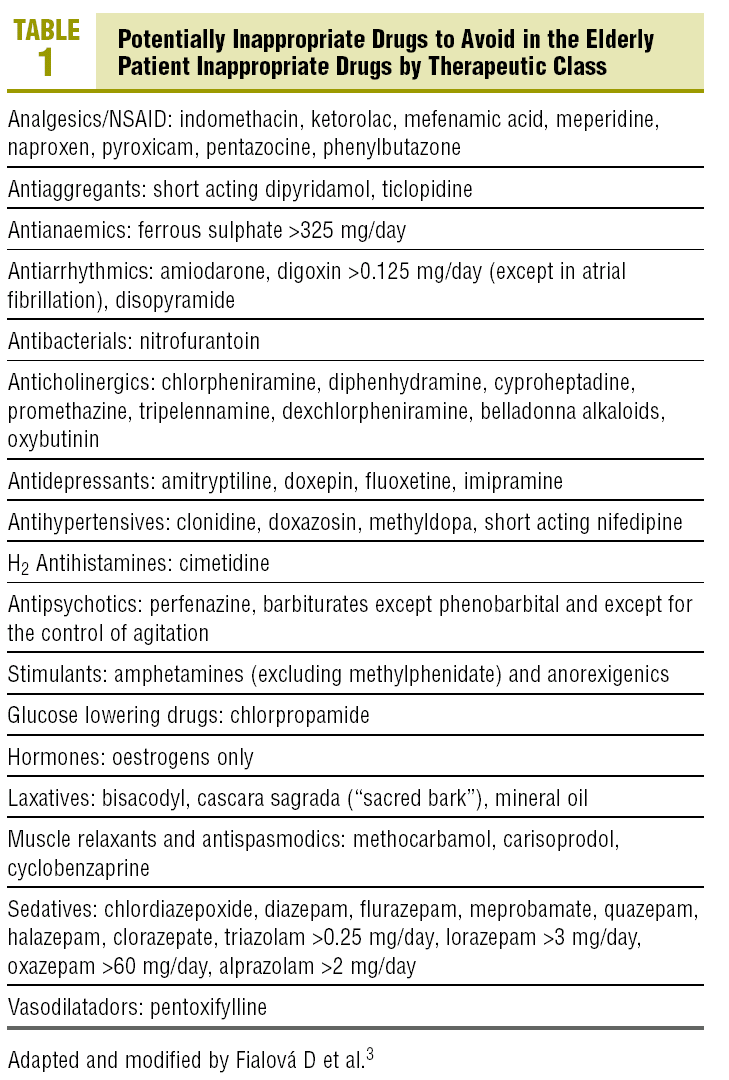Multiple medication and the prescribing of inappropriate drugs to patients of advanced age increases the risk of adverse reactions and are a, probably preventable, cause of hospital admissions and a very considerable increase in costs to the health care system.1,2
Although the inappropriate use of drugs has been widely documented in the United States and Canada, with a high prevalence of around 14%-34% of the general elderly population and >40% in residences, it has not been the case in Europe. The few studies that have documented this problem, mainly carried out in northern European countries, estimate a prevalence of 12.5%-20%.2-4
The study by Gavilán Moral et al1 is a new contribution to the knowledge and situation analysis of the inappropriate use of drugs in elderly immobile patients who live in the community, as it is one of the few studies that documents this problem in Spain.
The authors have based it on the recently updated criteria of Beers et al.5 These set out drugs and doses which must be avoided in the elderly due to the higher risk of adverse reactions and offer therapeutic alternatives with a lower potential risk. Table indicates the potentially inappropriate medications which should be avoided in the elderly, adapted for drugs marketed in Spain.
The study showed a high prevalence of multiple medication and a high percentage of patients using inappropriate medications (35%). Although there are methodological differences in this study compared to previous studies,2-4 the high percentage of inappropriate use does not surprise us, due to the characteristics of the patients included: 100% functionally disable, with a mean age of 81 years, 74.8% women, 47% at a low or very low socioeconomic level, 76.1% on multiple medication, all of these factors associated with the inappropriate use of drugs.1-3
The results cannot be extrapolated nor generalised, the percentage of inappropriate use is probably under-estimated due to not collecting the duration of the treatments and by not including institutionalised patients, the information relative to therapeutic compliance or pharmacological interactions.1,6
The use of lists of potentially inappropriate drugs must be considered as a tool to identify suboptimal treatments, whether it is due to not receiving the effective drug or due to receiving inadequate doses. In the article by Gavilán Moral et al,1 the tranquilisers with a long elimination half life and hypnotics were the most frequent inappropriate drugs, but they increase the risk of falls and fractures.6 Also, angiotensin converting enzyme inhibitors reduce mortality in patients with cardiac failure, and the oral anticoagulants prevent the risk of stroke in patients with atrial fibrillation. On the other hand, they are only prescribed to a minority of patients of advanced age.6 It also has to be taken into account that elderly and multiple medication patients are normally excluded from clinical trials.6 Also, 30% of the drugs included in the Beers criteria are not marketed in Spain.
The study by Gavilán Moral et al,1 shows that 77.7% of the inappropriate prescriptions originate from the family doctor and is, therefore, a challenge for the primary care clinic.
How can we reduce the use of inappropriate prescriptions? It is essential to carry out a complete pharmacological anamnesis, to define possible therapeutic alternatives, to review the treatment periodically, to adjust the dose, the regime and duration of treatment, and critically consider the advisability of the pharmacological treatment in each patient, particularly in patients admitted to geriatric residences and those on multiple medication.2
The article demonstrates that multiple medication and the inappropriate use of drugs are common in the elderly. International studies show that they are a risk factor, probably preventable, for increased adverse reactions and hospital admissions.2
The prevention and recognition of the problems associated with the use of drugs in patients of advanced age is one of the main challenges for the health care system.6
The possible use of computerised systems to help make decisions should be increased,7 that include immediate alerts in case of redundant prescriptions, pharmacological interactions and potentially inappropriate prescriptions. Communication between doctors and pharmacists should also be more effective to improve the quality of care.6
Future investigations should include patients on multiple medication in clinical trials. Epidemiological studies should also be carried out that control the use of medications in the elderly population.6
Interventions that approach the problem in a comprehensive manner are required, which include the patients and their carers, the doctors and the nursing staff, and the pharmacist, to improve the quality of prescribing and the health results of the patient.6
Key Points
* Multiple medication and the use of inappropriate drugs increase the risk of adverse effects and are a preventable cause of hospital admissions and a considerable cost to the health care system.
* They are an unavoidable challenge for the health care system.
* Strategies must be investigated and implemented to reduce multiple medication and the inappropriate use of drugs in patients of advanced age.
* Communication between the doctor and the pharmacist needs to be optimised and effective to improve the quality of care.








